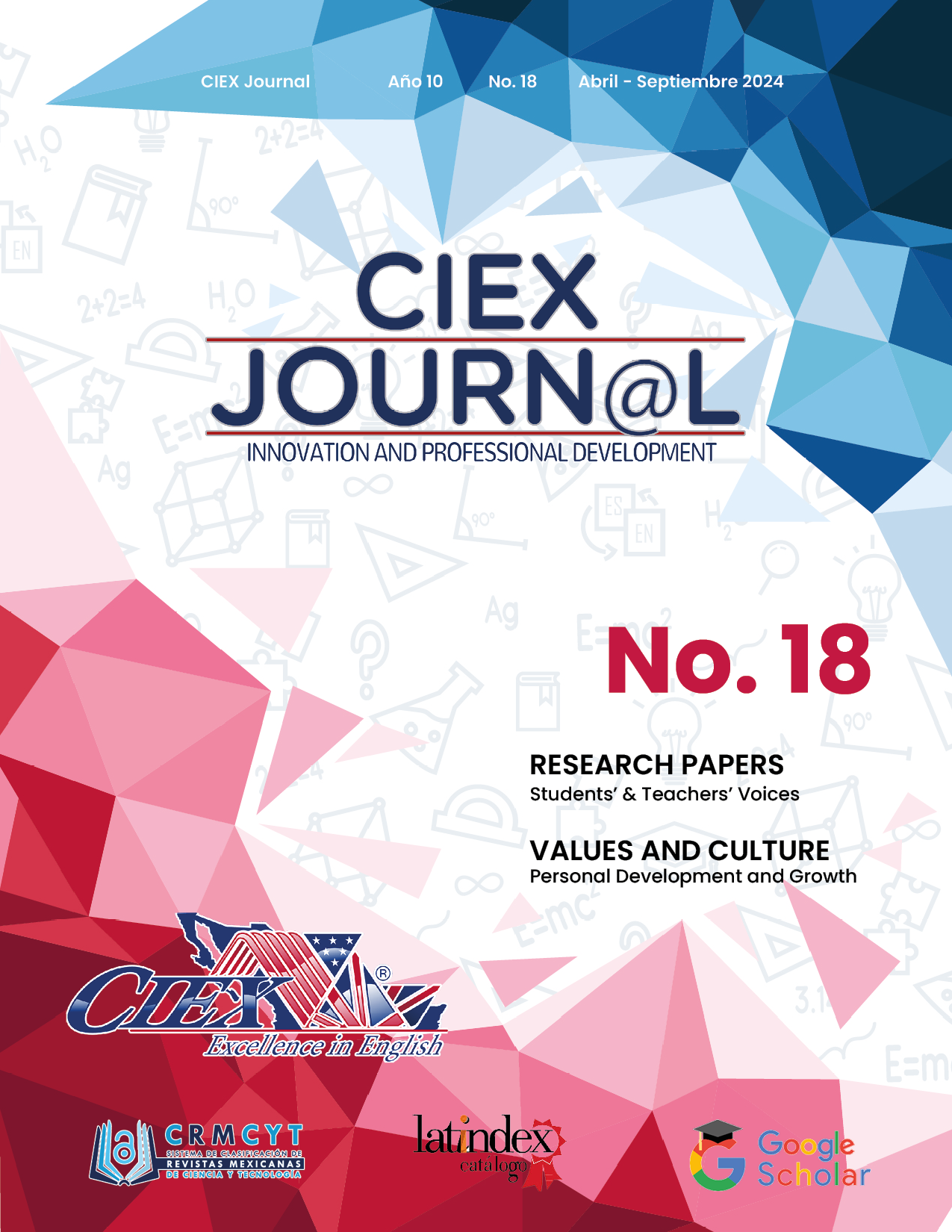Ethics and English Language Classes
Experiences among undergraduate students.
Keywords:
Academic Dishonesty, Ethic, academic misconduct, cheating practices, plagiarism, higher education, Deshonestidad Académica, mala conducta académica, prácticas de trampa, plagio, educación superiorAbstract
The purpose of this research is to know the frequency and opinions about fraudulent behavior among undergraduate English language learners. Facts were collected through a survey specifically designed to gather data and analyze it in terms of severity levels and name the most common ones. Preliminary results show that 32% of students said that behaviors such as copying exam answers or bribing are of minimal severity, while only 19% consider them to be of maximum severity. However, 67% admitted to never having committed such behaviors, while 15% admitted to having committed these acts one to ten times. Finally, only 3% accepted having committed this type of irregularity. In conclusion, results were favorable since the majority does not practice these behaviors, but it is necessary to pay attention to the minority that carries out this type of academic fraud, which is why the analysis concludes with suggestions to reduce these actions.
Downloads

Published
How to Cite
Issue
Section
License
Copyright (c) 2024 CIEX JOURNAL

This work is licensed under a Creative Commons Attribution-NonCommercial 4.0 International License.




